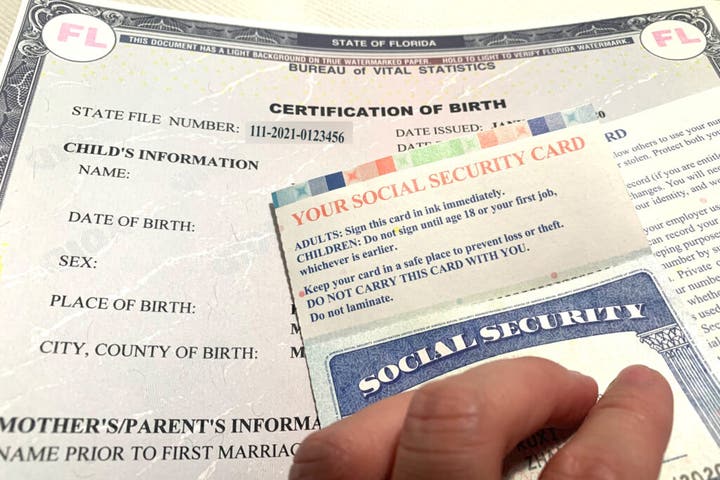
When a letter from the Social Security Administration landed in one Reddit user's mailbox, they expected routine paperwork. Instead, it claimed they owed more than $11,000 in overpaid benefits — money they say they never received.
Years earlier, their father had been injured at work and collected disability payments. As a child at the time, the poster says they never saw any of that money. Eventually, the relationship with their father soured, and about four years ago, he disappeared entirely. They had no contact — until the SSA letter arrived, holding them responsible for benefits tied to his claim.
"I have no idea what I'm supposed to do," they wrote, adding that they'd never been in debt before and were "extremely stressed out" by the demand.
Don't Miss:
- The same firms that backed Uber, Venmo and eBay are investing in this pre-IPO company disrupting a $1.8T market — and you can too at just $2.90/share.
- ‘Scrolling To UBI' — Deloitte's #1 fastest-growing software company allows users to earn money on their phones. You can invest today for just $0.30/share.
Understanding Overpayments
The SSA defines an overpayment as receiving more money than you should have been paid. This can happen for several reasons — such as a change in income, living arrangements, or work activity — and may apply to benefits received on behalf of a child.
When an overpayment occurs, the SSA sends a letter explaining the reason, the amount owed, repayment options, and the recipient's rights to appeal or request a waiver.
How Others Have Handled Similar Situations
Commenters on the Reddit thread offered insight based on personal experience. One noted that the poster could file Form SSA-632, Request for Waiver of Overpayment Recovery, and state that they were a minor when the benefits were issued.
Trending: Kevin O'Leary Says Real Estate's Been a Smart Bet for 200 Years — This Platform Lets Anyone Tap Into It
Another shared a similar case where their daughter owed $3,000 for benefits tied to her mother's disability claim. She requested a waiver, citing both her age at the time and her inability to repay. After a long delay during the COVID-19 pandemic, the SSA ultimately waived the debt.
Some advised asking the SSA to assign responsibility for repayment to the parent who received the benefits. Others emphasized the importance of acting quickly, noting that the agency can recover overpayments from federal income tax refunds if the debt is not addressed.
Appeal and Waiver Options
The SSA gives recipients two main ways to challenge an overpayment:
- Appeal the decision by filing Form SSA-561, Request for Reconsideration, within 60 days of receiving the notice. This is appropriate if you believe the overpayment amount is incorrect or that no overpayment occurred.
- Request a waiver using Form SSA-632 if you believe the overpayment was not your fault and repaying would cause financial hardship or be unfair. There's no time limit to file for a waiver.
Until a decision is made, the SSA will stop collection efforts on the disputed amount.
See Also: If there was a new fund backed by Jeff Bezos offering a 7-9% target yield with monthly dividends would you invest in it?
Taking the Next Step
While an unexpected $11,000 bill from the SSA can feel overwhelming, experts and people who've faced similar situations say it's important to respond promptly, keep documentation, and follow up on your case. In some cases — particularly when the person was a minor and had no control over the funds — repayment can be waived entirely.
Read Next: In a $34 Trillion Debt Era, The Right AI Could Be Your Financial Advantage — Learn More
Image: Shutterstock







